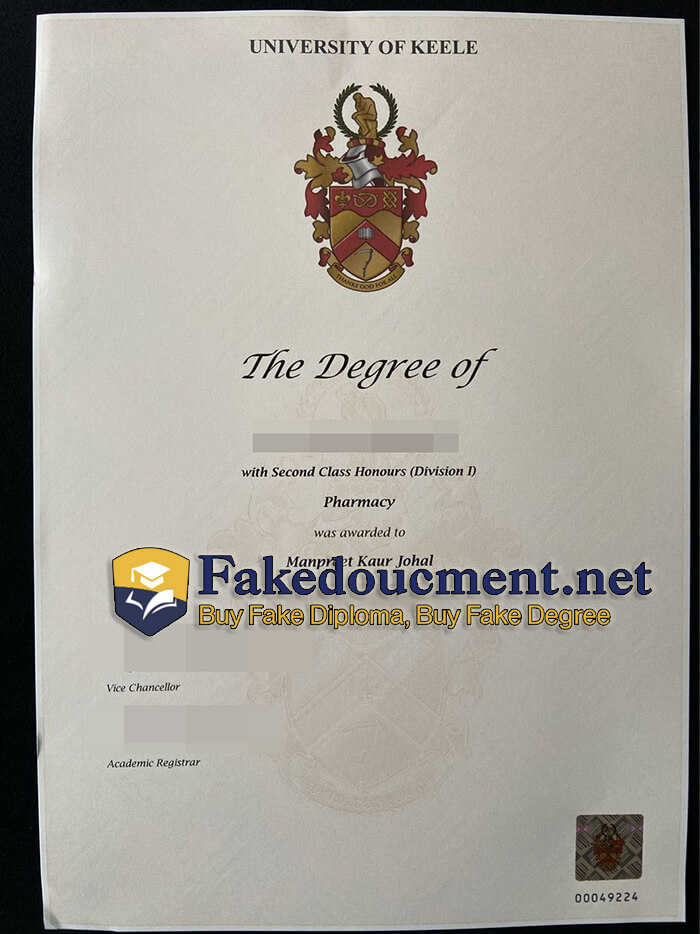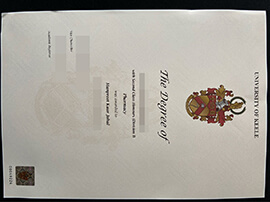
Where to order a realistic University of Keele degree certificate online? Which iste is best to buy a realistic University of Keele diploma certificate online? The best way to buy a realistic University of Keele degree certificate online? Founded in 1949, the University of Keele is a public research university located in Staffordshire, England. It is known for its interdisciplinary approach to education and research, offering a wide range of undergraduate and postgraduate programs in fields such as business, health, humanities, sciences, and social sciences. Keele University is also recognized for its beautiful campus, which includes a mix of modern and historic buildings set in a rural parkland estate.
Keele occupies a 625-acre (253-hectare) rural campus close to the village of Keele and includes extensive woods, lakes and Keele Hall set in the Staffordshire Potteries. It has a science park and a conference centre, and is the largest campus university in the UK. The university’s Medical School operates the clinical part of its courses from a separate campus at the Royal Stoke University Hospital. The School of Nursing and Midwifery is based at the nearby Clinical Education Centre.
Cambridge and Oxford Extension Lectures had been arranged in the Potteries since the 1890s, but outside any organised educational framework or establishment. In 1904, funds were raised by local industrialists to support teaching by the creation of a North Staffordshire College, but the project, without the backing of Staffordshire County Council, was abandoned.
By the late 1930s the Staffordshire towns of Longton, Fenton, Burslem, Hanley had grown into the largest conurbation without some form of university provision. A large area including Staffordshire, Shropshire and parts of Cheshire and Derbyshire did not have its own university. Stoke, in particular, demanded highly qualified graduates for the regional pottery and mining industries and also additional social workers, teachers and administrators. A. D. Lindsay, Professor of Philosophy and Master of Balliol College, Oxford, was a strong advocate of working-class adult education, and suggested a “people’s university” in an address to the North Staffordshire Workers’ Educational Association in 1925.
Recently appointed to the House of Lords, Lindsay participated in producing the influential Foreign Office report University Reform in Germany, which argued that no institution deserved the name of “university” unless it combined teaching and research. Consistent with his democratic ideals of education, Lindsay also warned of the dangers of training the specialist intellect in the natural sciences and the need to introduce elements of social sciences at university level by broadening the academic agenda.
Lindsay believed technological excesses sponsored by the state without a review of the social and political consequences had been a major contributor to Germany’s downfall. This was to heavily influence Keele’s curriculum.
On 13 March 1946, Lindsay wrote to Sir Walter Moberly, chair of the University Grants Committee (UGC), suggesting the creation of a college “on new lines”. The committee wanted a university for the 20th century that could overcome the division between arts and sciences, and what Moberly was calling the “evil of departmentalism”. The UGC argued that “The tasks of the modern citizen and the study of modern society should be central to the curriculum.”
North Staffordshire was seen as an ideal site since it “presented many typical problems thrown up by modern industrial conglomerations, such as those posed by technical innovation in the pottery and mining industries.” The college could become a “social laboratory” for industries and the local communities they catered for.






